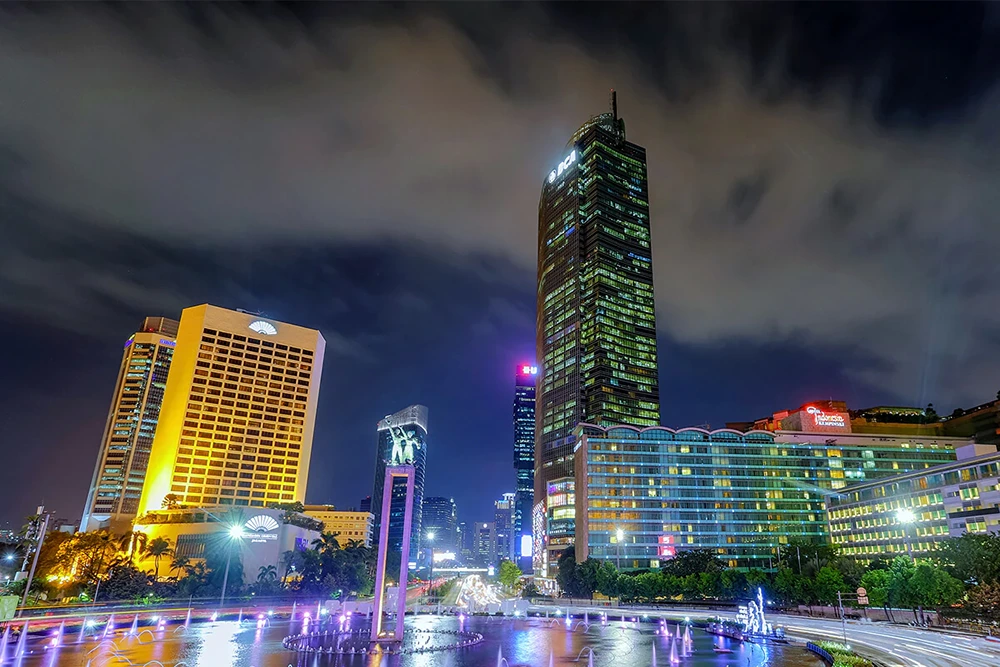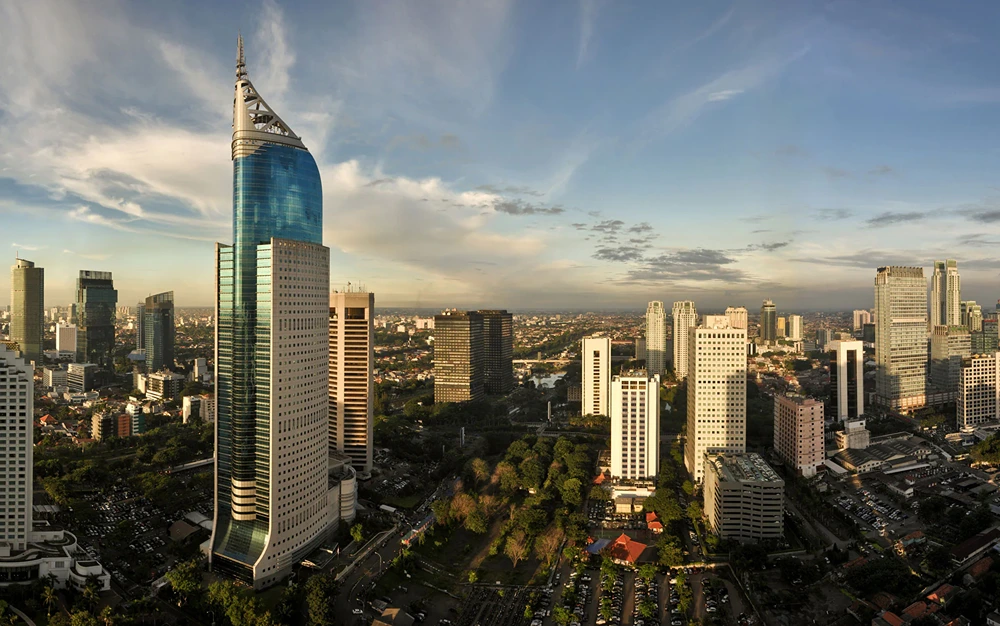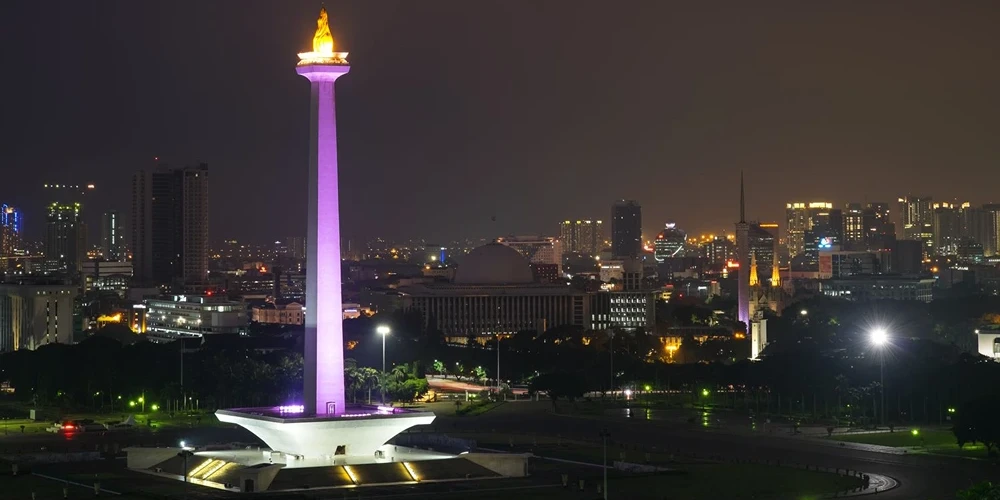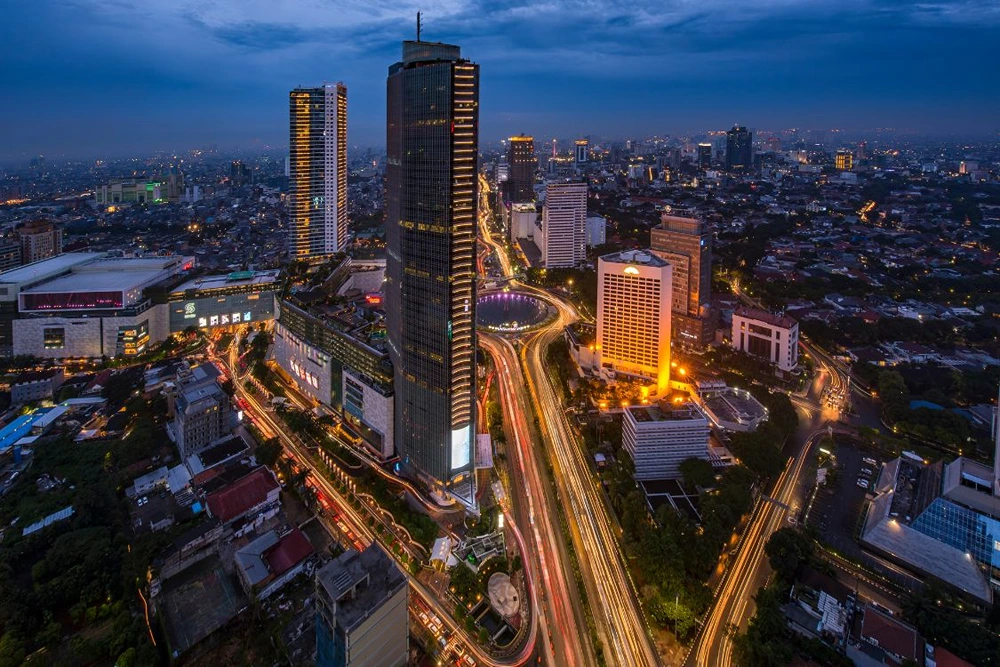As the economic, cultural, and political center of Indonesia, Jakarta offers visitors a unique blend of experiences:
- Diverse attractions: From ancient temples to contemporary art galleries
- Rich culinary scene: Indulge in local delicacies and international cuisines
- Shopping paradise: Explore traditional markets and luxurious malls
- Dynamic nightlife: Experience the city’s energetic after-dark scene
- Cultural immersion: Discover Indonesia’s rich heritage and traditions
Whether you’re a history buff, foodie, shopaholic, or adventure seeker, Jakarta has something for everyone.
Travel Resources
To make your Jakarta trip seamless and enjoyable, consider these essential resources:
- Flights: Find budget-friendly options to Jakarta through comparison websites
- Travel Insurance: Ensure peace of mind with comprehensive coverage from reputable providers
- Car Rental: Explore at your own pace by renting a car
- Guided Tours: Discover Jakarta’s hidden gems with expert-led experiences
- Accommodations: Book your stay through platforms like Booking.com or Airbnb

Some History First
Jakarta’s rich history spans centuries, evolving from a small port town to a sprawling metropolis:
- Ancient origins: Known as Sunda Kelapa in the 4th century
- Colonial era: Renamed Batavia by the Dutch in the 17th century
- Independence: Became the capital of Indonesia in 1949
- Modern growth: Rapid development and urbanization since the mid-20th century
Key historical sites to visit include:
- Sunda Kelapa Harbor
- Jakarta History Museum (formerly Batavia City Hall)
- National Monument (Monas)
Jakarta Today
Today, Jakarta stands as a dynamic metropolis showcasing Indonesia’s rapid development:
- Population: Over 10 million in the city proper, 30 million in the greater area
- Economy: Major financial hub of Southeast Asia
- Culture: Blend of traditional Javanese, Sundanese, and modern global influences
- Urban challenges: Traffic congestion and environmental issues
- Ongoing development: Major infrastructure projects, including a new capital city plan
Is Jakarta Safe?
Jakarta is generally safe for tourists, but as with any large city, it’s important to stay vigilant:
- Petty crime: Be aware of pickpocketing in crowded areas
- Traffic: Exercise caution when crossing streets or using motorbike taxis
- Natural disasters: Familiarize yourself with emergency procedures for floods or earthquakes
- Health: Drink bottled water and be cautious with street food
Tips for staying safe:
- Keep valuables secure and be aware of your surroundings
- Use reputable transportation services
- Stay informed about local conditions and follow official advice
Where is Jakarta?
Jakarta is strategically located on the northwest coast of Java, Indonesia’s most populous island:
- Coordinates: 6°12′S 106°49′E
- Area: Approximately 661.5 square kilometers (255.4 sq mi)
- Bordering provinces: Banten to the west, West Java to the south and east
- Coastline: Jakarta Bay to the north, part of the Java Sea
Fun fact: Jakarta is sinking at an alarming rate due to excessive groundwater extraction, prompting plans for a new capital city.
Latest Articles
From The Area
What is the Best Time to Visit Jakarta?
The best time to visit Jakarta is during the dry season from June to September:
- Weather: Less rainfall and lower humidity
- Temperatures: Average highs of 31°C (88°F) and lows of 24°C (75°F)
- Events: Many cultural festivals occur during this period
Consider these factors:
- Wet season (October to March): Higher rainfall, potential for flooding
- Ramadan: Dates vary yearly; some businesses may have limited hours
- Peak tourist season: July and August; expect higher prices and crowds
How to Get to Jakarta & Around
Getting to and around Jakarta offers various options:
Arriving in Jakarta:
- Air: Soekarno-Hatta International Airport (CGK) – Indonesia’s main gateway
- Sea: Tanjung Priok Port for international and domestic ferries
- Rail: Connections to major Javanese cities via Gambir and Pasar Senen stations
Getting around the city:
- TransJakarta: Extensive bus rapid transit system
- MRT: Modern subway system (limited but expanding)
- Taxis: Blue Bird is a reputable company
- Ride-hailing apps: Grab and Gojek are popular and convenient
- Car rental: Available but traffic can be challenging for visitors
Tip: Consider using a mix of transportation methods to navigate Jakarta efficiently.
Things to Do in Jakarta
Jakarta offers a wealth of attractions and activities:
1. Historical sites:
- National Monument (Monas)
- Sunda Kelapa Harbor
- Jakarta Cathedral
2. Cultural experiences:
- Visit the diverse neighborhoods like Glodok (Chinatown)
- Explore traditional markets like Pasar Baru
3. Modern attractions:
- Enjoy theme parks like Ancol Dreamland
- Shop in mega-malls like Grand Indonesia
4. Culinary adventures:
- Sample street food at Jalan Sabang
- Dine at upscale restaurants in SCBD
5. Nature and recreation:
- Relax in Suropati Park
- Take a day trip to the Thousand Islands
Pro tip: Join a guided food tour to discover Jakarta’s diverse culinary scene safely and efficiently.
Where To Stay In Jakarta
Jakarta offers accommodations for every budget and preference:
- Luxury: Five-star hotels in Central Jakarta (Sudirman, Thamrin)
- Mid-range: Comfortable hotels in areas like Kemang or Kuningan
- Budget: Hostels and guesthouses in Cikini or Jalan Jaksa
- Long-term: Serviced apartments in residential areas like Pondok Indah
Popular areas to stay:
- Central Jakarta: Business district, close to major attractions
- South Jakarta: Trendy neighborhoods, expat-friendly
- North Jakarta: Near the old town and port area
- East Jakarta: More residential, with some industrial areas
- West Jakarta: Mix of old and new, with shopping centers

What To Eat In Jakarta
Jakarta’s culinary scene is a foodie’s paradise:
Must-try local dishes:
- Nasi goreng: Indonesian fried rice
- Sate: Grilled skewered meat with peanut sauce
- Gado-gado: Vegetable salad with peanut dressing
- Soto Betawi: Jakarta-style beef soup
- Kerak telor: Traditional Betawi omelette
Where to eat:
- Street food: Jalan Sabang, Glodok area
- Local restaurants: Sarinah food court, Menteng area
- High-end dining: SCBD, Senopati street
Tip: Be adventurous but mindful of hygiene when trying street food.
Entry & Exit Requirements
Visiting Jakarta requires some preparation:
- Visa: Many nationalities eligible for visa-free entry or visa-on-arrival
- Passport: Must be valid for at least 6 months beyond your stay
- Proof of onward travel: May be required upon entry
- Customs: Declare items exceeding duty-free allowance
Important: Always check the latest requirements with the Indonesian Embassy or consulate in your country before traveling.
What To Pack For Your Trip
Prepare for Jakarta’s tropical climate and cultural norms:
Essential items:
- Lightweight, breathable clothing
- Modest attire for visiting religious sites
- Comfortable walking shoes
- Rain jacket or umbrella
- Sunscreen and insect repellent
- Universal power adapter
- Reusable water bottle
Tips:
- Dress modestly in public areas
- Bring medications with prescriptions
- Consider packing a basic first-aid kit
Remember, Jakarta has modern shopping centers where you can buy most items you might forget.
FAQs
Check visa requirements based on your nationality before traveling.
It’s recommended to drink bottled or filtered water to avoid stomach issues.
Don’t miss the National Museum and the Museum MACAN (Modern and Contemporary Art in Nusantara).



